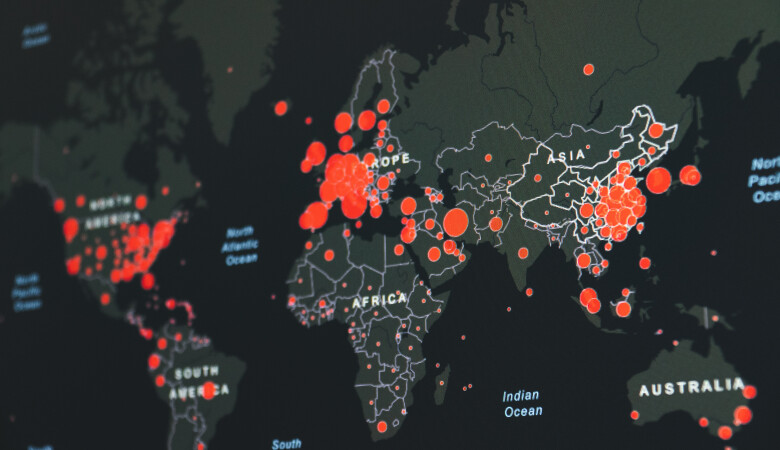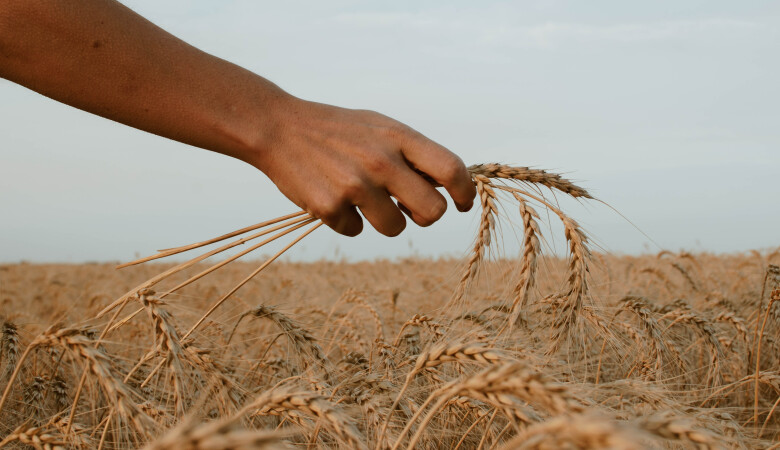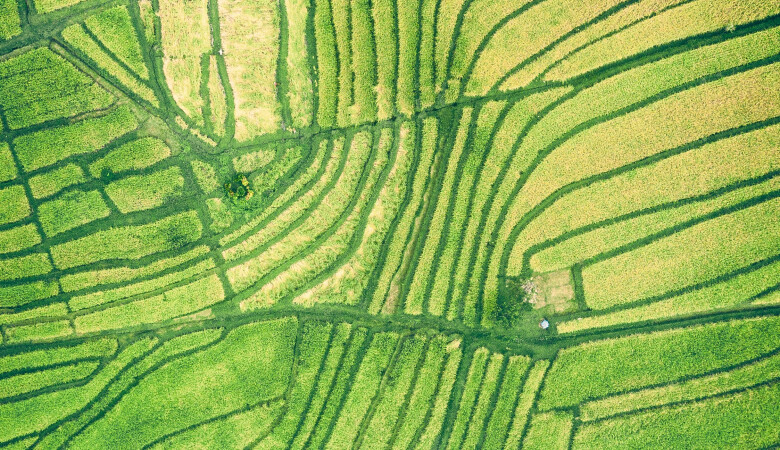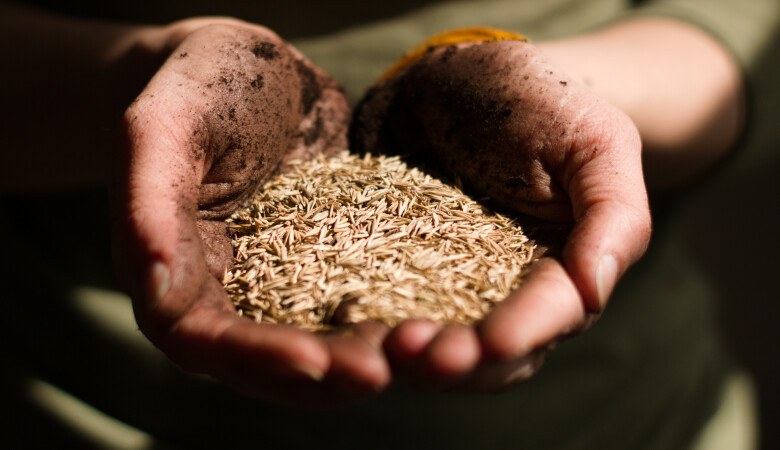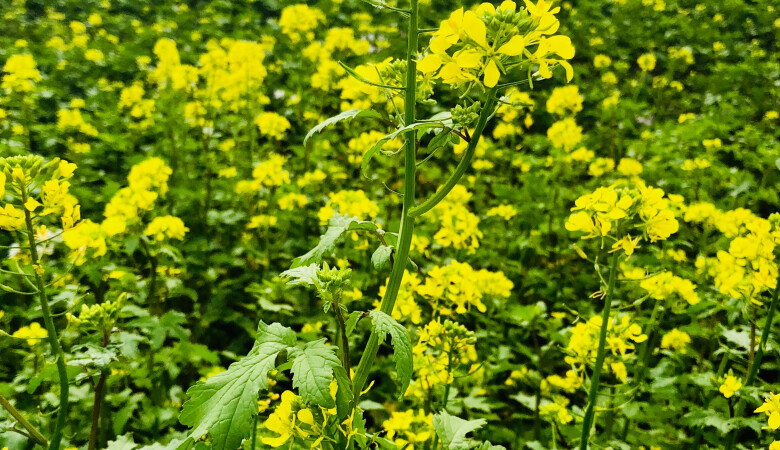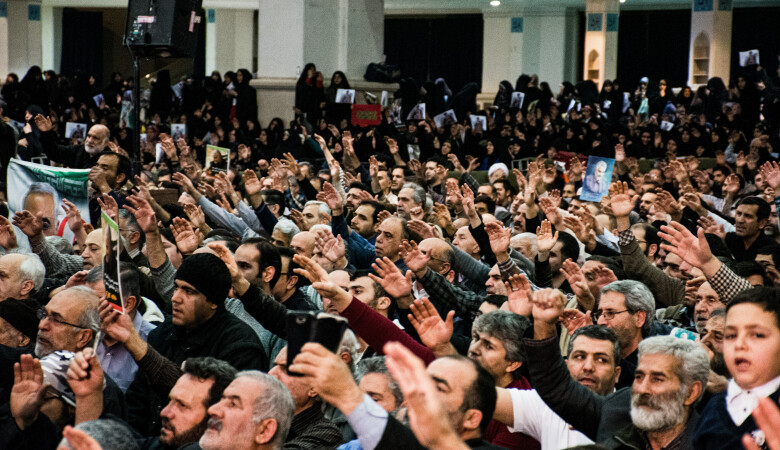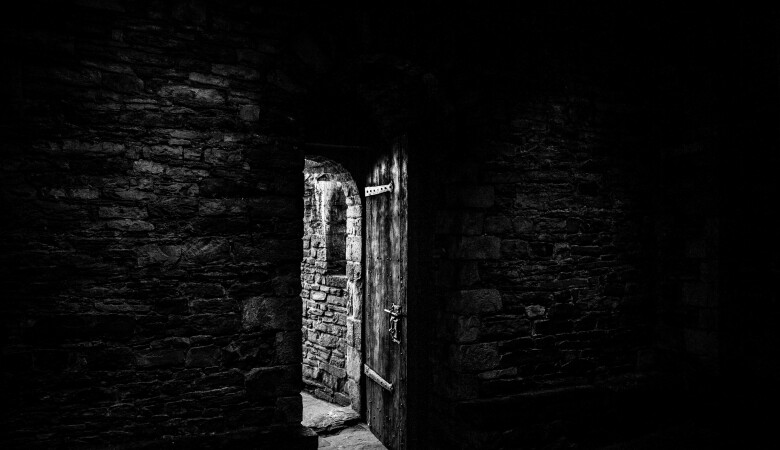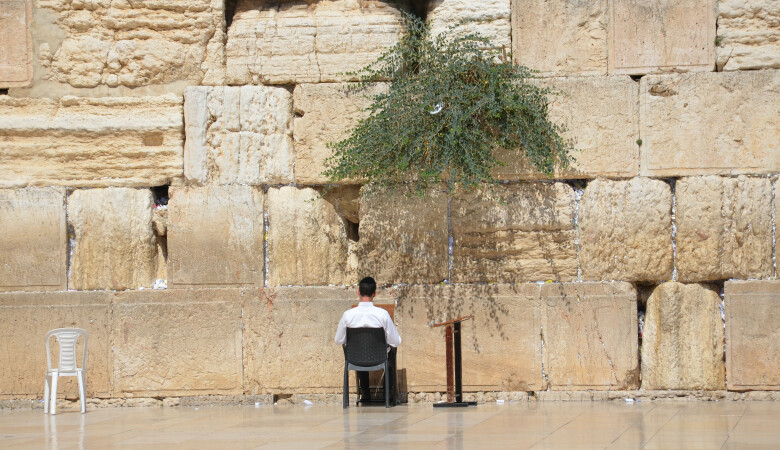Series: Mark
What Gospel Laborers Can Do, and What They Cannot (Mark Sermon 19)
June 12, 2022 | Andy Davis
Mark 4:26-29
The Holy Spirit, Evangelism
Pastor Andy Davis preaches a sermon on Mark 4: 26-29 and explains what Christians can and cannot do for the advance of the gospel of Christ.
- SERMON Transcript -
I. A Crushing Burden That No One Can Bear
Turn in your Bibles to Mark 4. We're going to be looking at this incredible little parable, a parable only found in the Gospel of Mark, not found in Matthew or Luke or John. I'm going to begin with a story from church history which I find fascinating. Luke Short was a healthy farmer who lived in colonial New England had reached his hundredth year. He was a hundred years old, but as yet he had not been converted, he had not trusted in Christ for the salvation of his soul. One afternoon, there in Colonial New England, he sat in a field and his mind went back over his long life, back to his boyhood years in Dartmouth, England, before he sailed for America. At the age of 15, he heard a sermon preached by the great puritan preacher, John Flavel. He was preaching on the text, "If any man loved not the Lord Jesus Christ, let him be a cursed." [1 Corinthians 16:22]. Flavel focused on the horror of dying under God's curse. Eighty-five years later, Luke Short, sitting in that field under a tree, felt the fear of God come on him and repented and trusted in Christ; he found forgiveness. I wonder what was going on for those 85 years, don't you? I feel that in part this little parable that we're going to study today, addresses that, a secret working of the Spirit of God within the hearts of individuals, after they have received the seed of the gospel, that eventually produces the harvest of salvation in that person's life. A secret working of God that we cannot understand, and we cannot affect, we cannot bring it about, but only God can. That's what this parable is about.
Now in this, I believe that the Lord Jesus is alleviating from us a crushing burden that none of us can bear. Mark 4 is an incredible chapter. It begins with the parable of the seed and the soils, various soil types and various outcomes. Then he continues to teach other aspects of the spreading of the seed and of the spread of the gospel.
At that point, the Twelve apostles did not know that they were going to be given the responsibility of the great commission and through them also, we, all of us, every generation of Christian, the responsibility of the great commission, given in each of the four gospels and also in the Book of Acts. That we are to take the gospel and go to the ends of the Earth and spread the gospel everywhere and make disciples and baptize them in the name of the Father and the Son of the Holy Spirit and then teach them to obey everything that Christ has commanded. We are given that responsibility. But in the midst of that, we must understand our limitations, our limited role. Jesus would lift from us a crushing burden that we cannot bear. Matthew 23 talks about the Scribes and Pharisees in many ways, their judgmental ways. One of the first things Jesus says about the Scribes and Pharisees is that they lay crushing burdens on people and they are not willing to lift a finger to move them [Matthew 23:4]. In Acts 15, Peter talks about a yolk, or a burden, that neither we nor our fathers have been able to bear, a crushing burden.
What is the burden here? Suppose that you believe that the eternal destiny of specific people, or a specific person, was completely up to you. You had to devise a way to win a person or a set of lost people. You had to pick the locks of their personalities, of their particular perspectives and their culture, so that the locked gates of their hearts would swing open to Christ. You had to figure that out and that if you failed, they would spend eternity in hell, wailing and gnashing their teeth, crying in agony, ultimately, because you failed to deliver the gospel, the perfect work of Christ. You failed to deliver it to them and find a way to win them to Christ. That I tell you is a crushing burden that no one can bear. Getting more specific, imagine if the Lord pointed to some coworker, or a neighbor, or a group of neighbors, or for a missionary, let's say an unreached people group assigned to you. You're the only missionary unit working on that unreached people group or a massive city in Asia with 20 million people, and the Lord were to say to you, "Their eternal destiny depends on you finding a way to actually bring them to Christ. I have done my part, shed my blood. Now it's up to you to do your part." Well, if that doesn't crush your spirit, I don't know what would. Perhaps just as bad would be somebody that says, "I can do that." You rise to the occasion, and you do find a way and you do bring in someone to Christ, and then you arrogantly boast as though somehow you had achieved some great thing. That you are in some way, just as responsible for their salvation as Jesus was. That would be insufferable to listen to that for all eternity up in heaven. Both sides are bad, as with any faithless self-reliance, it brings you to either despair or arrogance, depending on whether you think you can meet the challenge.
To cut all of that off, Jesus gives us this little parable, this beautiful little parable. It's extremely humbling actually, but it's also incredibly encouraging. If you look at it properly, listen to the words again. Mark 4:26-29, "He also said, this is what the kingdom of God is like. A man scatters seed in the ground. Night and day, whether he sleeps or gets up, the seed sprouts and grows, though he does not know how. All by itself, the soil produces grain. First, the stalk, then the head, then the full kernel in the head. As soon as the grain is ripe, he puts the sickle to it because the harvest has come."
This is kind of a simple restatement of the parable. As evangelists, as spreaders of the word of God, as farmers of the gospel, we have a limited role, we scatter the seed on the ground. Then we do nothing else within this parable. We cannot give life. Life comes apart from anything we possibly can do. Whether we are awake or asleep, the word of God does it all. All by itself, the soil produces grain. But we, who have scattered the seed, have no idea how it happens. It has nothing to do with our power or our knowledge. It is God alone that gives life. God alone that gives spiritual growth. We get to scatter the seed and then we get to go to bed and sleep. God does everything else. What really matters? God gives life. We cannot.
“We cannot give life. Life comes apart from anything we possibly can do. Whether we are awake or asleep, the word of God does it all.”
God's reason, it seems to me for all of this, is very plain. He alone gets the glory for this salvation of souls, that He alone takes responsibility for the condemnation of souls. God is everything. He's absolutely sovereign in salvation, as I Corinthians 1:31 says, "As it is written, let him who boasts, boast in the Lord." We are humbled by this. We're also greatly encouraged as well. We're going to talk now about what we gospel farmers can do and what we cannot do. Then I'm just going to go over the same thing again and just intensify it and speak about what we gospel farmers must do and what we must not do.
II. What Gospel Farmers Can Do
Let's begin with what gospel farmers can do. One of the key interpretation principles for me for this parable is the insight that the one who sows the seed here is not Christ. It's not Jesus here. It is true in the parable of the wheat and the tares. The one who sows the wheat and the weeds is Jesus. The one who sows the good seed is the Son of Man [Matthew 13:37]. But here, this man who sowed knows nothing about how the seed grows. Friends, that's not Jesus. Jesus knows everything about how the seed grows. But this man doesn't know anything about it and he can do nothing about it. He cannot make it grow and he sleeps. The gospel farmer is anyone who scatters the word. So, what can ordinary gospel farmers like you and me do? First, they can scatter the seed of the word. Look at verse 26, “This is what the kingdom of God is like. A man scattered seed in the ground." Jesus began most of his parables with this kind of introduction. Like, “The kingdom of heaven is like…” Or, "This is what the kingdom of God is like," something like that. What does that mean? The kingdom of heaven in Matthew, the kingdom of God in Mark and Luke, the same thing, is this spiritual domain where God rules over subjects who are delighted to have him ruling over them. We enter the kingdom of God by repentance and faith in Christ. That's what the kingdom of God is like. When Jesus is telling parables, he's saying, "This is how the king does his business. This is how the kingdom works. This is an aspect of the way that the king does his work in his kingdom. That's how the parables work."
He begins by saying, “A man scatter seed on the ground.” We already talked about the seed and the soils. The seed is the word of God, more specifically, especially the Gospel. It could be any teaching from scripture but I think especially it focuses on the Gospel, the pinnacle of scripture teaching. So the seed is the word of God. There is almost nothing said about the person who scatters the seed. It could be a man, could be a woman, could be a boy, could be a girl. It doesn't matter, it’s not really addressed. He or she is unremarkable. There's nothing special about this person at all and the role is simple, scatter the seed on the ground. There's no plowing mentioned. There's no preparation of the soil here. There's no building of a protective wall or a watch tower or a wine press or any of that equipment. Those are mentioned in other parables, not here. Simply put, this sower speaks the word of God to another human being. They just speak the Gospel to another person.
It could be a pastor preaching a sermon like I am right now, or it could be a neighbor speaking the gospel to another neighbor over tea, some hospitality and chance to share the gospel. It could be a passenger sitting in next to another passenger on a plane and talking about the gospel. It could be a coworker with another coworker at a coffee break, speaking the gospel. It could be a mother speaking the gospel to her growing children in their home. Gospel workers can do this as much as they like, and I will exhort you at the end of the sermon to do it more than you've ever done it before. But Jesus makes very little of the process. There's nothing simpler than scattering seed on the ground. So picture yourself within the parable. You're walking through the field, you have a bag slung across, crosswise on your chest, and a bag of seed on your hip and you reach in and you pull a fist full of seed and you just scatter it. I mean, if you have any intelligence, you're going to go in an organized pattern through the field. You don't want to dump it all in one area. That wouldn't take long, but that would be pretty stupid. So there'd be an intelligence moving through, but you're just reaching in throwing seed. Reaching in, scattering seed. You do it again and again. You go through and scatter the seed, and then you've sown the entire field. This is the first thing that the parable says that we gospel farmers can do.
Next, it says a gospel farmer can harvest the crop. Verse 29 for me is a very important key to this parable, so listen carefully here. "As soon as the grain is ripe, he puts the sickle to it because the harvest has come." So the same one that scattered the seed and the parable does the harvesting too. When the grain is right, it is ready to be harvested. What is that harvest? That's the important question here. What is the harvest? It's one of two possibilities. The growth and development of the seed could be the entire Christian life, including all of the fruitfulness that comes through that entire life, like in the parable of the seed and the soils in the 30, 60, a hundred times, what was sown, that kind of thing. Full life. Full fruit. Full growth, whatever. But if that's true, what is the harvest? That would be death, or the second coming. Can I just tell you simply, you're not going to do that, you're not the grim reaper. You don't have any role in ending someone else's life. You're not the Lord coming in the clouds. So the harvest must be something else, and it's the other option which is the bringing of a person to an initial clear profession of faith in Christ. They are now a Christian. They've come into the kingdom. This is the exact kind of language that Jesus uses in John 4. You remember the conversation he had with the Samaritan woman. They have an incredible conversation, just the two of them, and she finally concludes that Jesus is the Messiah that they've been waiting for all those centuries. He's the one. So she leaves her water jar there and runs into the Samaritan village and she rouses all of her fellow villagers to come out and see Jesus, come out and see this man that I've been talking to, told me everything I've ever done. Could this be the Christ? She is effective in bringing them all out.
Meanwhile, the disciples who are in the Samaritan village had been buying lunch to go. They brought lunch, to go out to Jesus. They said, "It's time to eat,” and Jesus said, "I have food to eat that you know nothing about." Could somebody have brought him lunch? What's going on in the minds of the disciples? They're in this whole Samaritan village with a bunch of lost people and all they do is buy food. Jesus, I think, effectively rebukes them. "I have food to eat you know nothing about. My food is to do the will of Him who sent me and finish his work. Do you not say four months more and then comes the harvest? I tell you, lift up your fields and look at them. They're ripe for harvest. Even now the reaper draws his wages. Even now he harvests the crop for eternal life, so that the sower and the reaper may be glad together, thus the saying, one sows and another reaps is true. I sent you to reap, what you have not worked for. Others have done the hard work and you reaped the benefit of their labor.” [John 4:35-38] We have a reaping we can do in this life, and what is that reaping? It is to be present when that person crosses over from death to life. You've done all that work, they're at the response, and you're pleading with them to repent and believe and they do. They become Christians and you get to do the reaping in that sense. The Samaritans say[John 4], talking to this woman who says because of Jesus’ words, many more became believers, they said to the woman, "We no longer believe just because of what you said. We have now heard for ourselves and we know, we know that this man is the Savior of the world." They have been reaped. They've been brought into the barn spiritually, they're Christians.
Who did the reaping that day? Jesus did, in that sense, but we have the possibility also of doing some reaping. Wouldn't you love to be part of that reaping? When you confirm that a person who has heard the word of the Gospel, the word of Christ, and has believed it as it says in John 5:24, "Whoever hears my word and believes him who sent me, has eternal life, and will not be condemned. He has crossed over from death to life." When you're there watching them cross over and they get to the other side and like, "Did I make it? Am I on the other side?" You get to say, "You are. You are now alive. Your sins are forgiven. Hallelujah. You are a Christian." As it says in John 20, "If you forgive anyone their sins, they are forgiven. If you do not forgive, they're not forgiven." That's messenger language. We're not the God of all the world, but we get to declare to people, “You are forgiven. You're a Christian. Welcome to the kingdom of God.” That's the reaping. Soon after that, I think as Christians, we would call for water baptism, make disciples, baptize them and teach them to obey. That'd be part of confirming the reaping. As it says, in Acts 2:40-41, "With many other words, you warn them and pleaded with them, save yourselves from this corrupt generation." That's Peter on the day of Pentecost. He's warning them, pleading with them. Three thousand accepted his message and were baptized and became members of the church that day.
Gospel farmers can scatter the seed of the word, and they can reap. They can bring in the harvest. What else can they do? They can sleep, and they can get up. It's like, do we really have permission to sleep? You do. That's what this guy in the parable does. After he scattered the seed, he went to bed. In verse 27, "Night and day, whether he sleeps or gets up, the seed sprouts and grows, though he does not know how." In other words, they can live their ordinary lives. They can go about their business. They can lie down knowing they've done their job and not be panicked about the outcome. The weight of their eternity does not rest on them. They can rest confidently, they can wake up, and they can get up and make breakfast and go about their work and maybe they'll do more seed sewing that next day. But the secret growth belongs to God. That's what the gospel farmers can do.
III. What Gospel Farmers Cannot Do
What can the gospel farmers not do? They cannot give life, they cannot give growth. In verse 27-28, "Night and day, that whether he sleeps or gets up, the seed sprouts and grows, though he does not know how. All by itself, the soil produces grain. First, the stalk, then the head then the full kernel in the head." Life itself may be the greatest mystery in this physical world. The most skilled farmer has no idea how the apparently lifeless seed germinates, puts forth the first shoot in the soil, the root. He doesn't have any idea how that happens. Even the most brilliant botanist or biologist who has spent hundreds, thousands of hours studying the germination of seeds and can describe with interesting terminology step-by-step what happens, but doesn't know really, because life is a mystery. It's a mystery of life. We cannot create life, only God can do that. The farmer, once he's scattered the seed all over the field, takes off the bag. He hangs it up in his barn. He washes up and eats dinner with his wife and kids. He goes to bed, wakes up the next morning, and he knows enough to leave the seed alone because there's nothing he can do to make the seeds grow, to germinate, to do all the amazing things that seeds do in the ground. He can't give that initial life, he can't make it grow. Imagine he goes out later, and there's all these little shiny green things coming up, row upon row. He's like, "Come on. Come on. Grow." He gets down and starts tugging on it. Leave it alone, you can't make it grow. He can do nothing. The man can do nothing. He knows nothing. Night and day, whether he sleeps or gets up, the seed sprouts and grows, though he does not know how. The farmer's power and skill contribute nothing to the life. He does not understand the process. The soil does everything. Look at verse 28. "All by itself, the soil produces grain. First the stalk, then the head, then the full kernel in the head.” It's automatic or by itself. The same word is used in Acts 12:10, when Peter is rescued miraculously from prison and from being killed. “They passed through the first and second guards and they came to the iron gate, leading to the city. It opened for them automatically, just by itself, and they went through it.” The use of the word by Jesus here means the farmer contributes nothing to the life and growth of the seed. The soil seems to do it by itself. That's actually not true. We know the real truth is God gives the growth. Here is the humbling parallel passage. In 1 Corinthians 3:6-7 the apostle Paul is speaking to the Corinthian church, "I planted the seed. Apollos watered. But God made it grow. So neither he who plants, nor he who waters is anything, but only God who makes things grow." What does it mean if we are not anything? It means we are nothing. God is everything. That's humbling, isn't it? But it's also encouraging. God makes things grow. God is everything.
Let's connect this to gospel work. Romans 1:16 says, "The gospel is the power of God for the salvation of everyone who believes." But that's only true if God adds the secret work of the Spirit to those who hear it. You know it's true. It's not all by itself, automatic. Many people hear the gospel and never repent and believe. But it's when God adds the second, the secret work of the Spirit within the heart of the individual, that life comes. How does that happen? If the harvest is the person's coming to Christ and if the planting of the seed is their first hearing of the gospel, that's the process between those two moments. That's very interesting. Look what it says, verse 28, "First the stalk, then the head, then the full kernel in the head, then that harvest comes." That must mean that there are unconverted, elect people, who have heard the word, have not yet trusted in Christ and stuff's going on inside them. They're thinking about it. I planted the seed and Apollos watered. There's things going on in the secret of their heart in the recesses of their heart. Like what? Conviction of sin starts to grow. Fear of hell starts to grow. A yearning for heaven starts to grow. Most importantly, the beauty of Christ and the sufficiency of Christ death on the cross and his resurrection starts to grow. Christ becomes more and more meaningful, but the person is still not yet converted. That sense of the beauty and a yearning for heaven and a rising terror of the judgment of God, all of that, is part of it. There are secret inducements, secret persuasions, coming to the mind, maybe even some sleepless nights.
Now to back this up, there's a lot of verses I could use, but you remember the third telling of the conversion of Saul of Tarsus in the book of Acts, adds a piece of information the other two didn't give us and that's where you remember the light strikes Saul of Tarsus to the ground, and from heaven comes a voice [Acts 26:14], "Saul, Saul, why do you persecute me?" And then He says, "This is Jesus. It is hard for you to kick against the goads." That's interesting. What are goads? They are sharpened stakes, put behind a beast of burden that's yolked up and pulling a plow, let's say, to keep it from kicking back at the master. They're sharp and the animal learns not to do that. Saul, pre-conversion Saul, was kicking against the goads. What are they? Secret inducements, persuasions, maybe some of the doctrine of Stephen. How Stephen died, how his face looked like the face of an angel and Saul was there giving consent to his death. But one preacher said Stephen's doctrine, his persuasions, his sermon and his manner of death, put a ticking time bomb inside the mind of Saul of Tarsus that went off on the Road to Damascus, in a good way, bringing him to salvation. That's the stalk the head, the full kernel. There's a process going on inside them, and yet amazingly there's still dead in their transgressions and sins, even while they live. So it's just not that simple. There are things that are going on inside that will eventually lead them to faith in Christ.
We can't do it. We cannot affect that conversion. Like it says in John 1: 12-13, "To all who received him, to those who believed in his name, he gave the right to become children of God. Children that were born not of the blood or of the will of the flesh, or of the will of man, but born of God." That means that you can't do it. Only God can do it. Also, a few chapters later in John 3 Jesus says to Nicodemus, verses 6-8, "Flesh gives birth to flesh, but the spirit gives birth to spirit. You should not be surprised at my saying you must be born again. "The wind blows wherever it pleases. You hear its sound, but you cannot tell where it comes from and where it is going. So it is with everyone who is born of the spirit." It’s interesting. He's telling those words to an unconverted man. To the end, he would be converted. There's internal truth and processes going on, so the Spirit moves wherever He chooses. People scatter the seed of the word but it is the Spirit that gives life. Two people could be sitting side by side, hearing the same message. One is converted and the other is not. There is nothing the evangelist can do to make it happen. He must simply deliver the word and leave the rest to the secret inner working of the spirit of God.
IV. What Gospel Farmers Must Do
What gospel farmers must do. We must diligently, diligently scatter the seed. Though the parable is meant to humble us and put us in our place, to give all praise and glory to God for all spiritual life and growth, yet we have a vital role to play. We must scatter the seed. We must preach the gospel to lost people. We must do this more than we have ever done it before. Some have one role, some have another. I'm called on to preach in this manner. Most people aren't. But others can share in the workplace, in the neighborhood, at family gatherings, at supermarkets, at your kids' little league games, at the doctor's office, at coffee shops. We have the ability to do this. We have the calling to do this. What some called “broadcast seed sowing.” What does that mean? Scattering it widely, lots of seed. I have a broadcast seed sower in my crawl space. I bring it out at certain times to scatter seed on my lawn. It's got a little hopper and you walk and it just spews them everywhere, so it saves me from having doing this, by hand, like the guy in the parable. I don't mean when I say broadcast using radio or the internet or social media. You can do all that, but that's not what I mean now. I mean lots and lots and lots of gospel encounters, not one or two. That it actually would be an odd day in which you don't say something to a lost person about Christ. Wouldn't you love to get to that point where you're just consistently saying something about Christ? Ask the Lord to work it in you. We must do this, for God is committed to us the ministry of reconciliation. 2 Corinthians 5:20, "As though God himself, we're making his appeal through us, we implore you, we beg you be reconciled to God." Can you imagine saying that to someone this week, “I’m an ambassador of heaven. I want you to know Christ, ”? Find the best words but we are called on for this role, more than ever before.
“We must scatter the seed. We must preach the gospel to lost people. We must do this more than we have ever done it before.”
Charles Spurgeon talking about this, saying, "The seed should be sown often. Sow again and again, for many of the foes of the wheat, and if you repeat not your sowing, you may never see a harvest." If you have this one seed and you're just once a week, there it is. I did my job. That's not it. He says, "Sow and sow and sow. Lots. No tribe of man, no peculiar constitution of the human mind may be neglected by us. Not the highly educated or the uneducated, not the rich or the poor. There's no one we can leave out." Then Spurgeon said, "Whenever Captain Cook, the celebrated explorer, landed in whatever part of the earth it might be, he took with him a little packet of English seeds and he was observed to scatter them in suitable places. He would leave the boat and wander up from the shore, go a little inland. He said nothing to anybody, but quietly scattered English seeds, wherever he went, so that he belted the world with flowers and herbs of his native land. So imitate him wherever you go. Sow spiritual seed in every place that your foot shall tread upon. Some of you, before long will be at holiday.” That's vacation at the seaside. I guess this was right before the summer in England. I don't know. “Some of you before long, will be at on holiday at the seaside or amidst the mountains of Switzerland. If that's you, talk to me. At least show me the pictures when you get back. The mountains of Switzerland or some other regions of the earth, in search of the variety and beauty of the world, carry the heavenly seeds with you and be not satisfied unless in every place, you let fall a grain or two that may bring forth fruit onto your God. So we can, we must, scatter seed, broadcast seed.”
Secondly, we must expect God for results. Expect God to bring in a harvest. In the parable, the man sleeps peacefully knowing he's going to have a harvest. He doesn't think, "Gee, I hope we have a harvest." No. I mean, he's a farmer. His family depends on it. He's been a farmer for many years. He's expecting a harvest. Spurgeon said, "I fear that many Christians work without faith. If you have a garden or a field and you sow seed in it, you would be very greatly surprised and grieved if it did not come up at all. But many Christian people seem quite content to work on and they never reckon upon results, so much as to look for it expectantly. This is a pitiful kind of working. Pulling up empty buckets, year after year. Surely I must either see a result for my labor and be glad, or else failing to see it, I must be ready to break my heart." We ought to expect results. If we had expected more, we should have seen more. But a lack of expectation has been a great cause of failure in God's workers. I think they go together. If you really expect to harvest you're going to sow more seed. If you really don't expect to harvest, you're not going to sow much.
V. What Gospel Farmers Must Never Do
Now, what gospel farmers must never do. We covered this a few weeks ago, but I'm going to say it again. We must never re-engineer the seed if it doesn't give the harvest we think it should give. That's not for us to do. If we take the seed of the gospel and do a feedback loop with audience reaction and we start taking out offensive elements like the blood, the atoning blood, or the exclusivity of Christ, the need for repentance and faith in Jesus, the law with its moral stipulations condemning us, apart from the work of Christ to hell. If we take out things like that and make the message more popular. If we re-engineer the seed and make a manmade gospel, Paul tells us in Galatians, "That is no gospel at all. It'd be better for you to be condemned than to preach a manmade gospel." We must never re-engineer the seed.
Secondly, we must not question the approach. I'm not saying that we can't do better, make certain that we didn't give offense where we should. I'm not saying that, but I mean the general approach of evangelism. Some people think to come up with techniques like within a church service, if you get the lighting right, and the music right, and the whole experience right, and the architecture right and all that, you set up all that things, you can get the response. Like they're engineering the whole thing. Or the prosperity gospel that seeks to bribe converts. We don't have enough money in our budget to bribe converts here in the Raleigh-Durham area—$500 for each convert. It's not just that they won't be genuine converts. They were called “rice bowl Christians” in other ages. They're coming for different reasons. That's the prosperity gospel. That's not the true gospel. We're not called on to do that. We must never re-engineer the gospel message or question the basic simple approach of evangelism.
Thirdly, we must not sleep, the sleep of the lazy. Yes, this man sleeps after he has done his work—after he is done his work. There is a confident, holy sleep that we can take when we have done the work God's called on us to do. As Ecclesiastes, 5:12 says, "The sleep of a labor is sweet, whether he eats little or much.” But there is also the sleep of the gospel sluggard in which we are asleep to the perishing all around us, sinfully asleep to their condition. As it says in Proverbs 10:5, "He who gathers crops in summer is a wise son, but he who sleeps during harvest is a disgraceful son." Let's not sleep during the harvest, now is the harvest time.
VI. A Final Appeal
Let me make a final appeal and then we'll be done. Really the whole sermon's been an appeal, but I must conclude by appealing directly to you who came to church this morning, lost. You came to church this morning, knowing yourself to be unconverted. You've heard the gospel, multiple times today. There it was, A to Z, the gospel. Wes had the gospel, a simple summary of the gospel when he introduced one of the songs. The gospel is simple and straightforward. The God of heaven is king of all the earth, created all things, and gives us laws by which we are to govern our life. We have broken those laws. We have violated his commands. We are sinners, and we cannot save ourselves. So God sent his son, who lived a sinless life, died in our place under the wrath of God, the punishment we deserve was laid on him. He died for us and He was risen from the dead on the third day and if we repent and believe in him, we'll be forgiven. You've heard it.
The danger of me giving you that Luke Short story, remember that guy that waited 85 years to be converted, is that you don't know that you have 85 days or 85 minutes. You don't know how much longer you have. While there's time, if today you hear his voice, don't harden your heart, come to Christ. And you Christians who came in here, and you are Christians, and you know that you're Christians, I'm just going to ask you, what are your habits of seed sowing? Are you scattering seed or not? And if not, ask the Lord to transform. Ask the Lord to give you opportunities to reach your hand into the bag and start scattering seed.
I want to say a final word to Christian parents. This is a fascinating parable for Christian parents. You sowed the seed in your kids a long time ago, and now something's going on inside them and it's mysterious, isn’t it? The stalk is growing up. Then the head, then the full kernel in the head. At some point, you get the privilege of harvesting. I don't know when that is. It might be when they are very young, or it might be a little bit older. But that secret working of the gospel, going on, trust in that. Pray for God to do that working and then go to sleep at night. It's not up to you to save your kids. It is something only God can do, so saturate them with the gospel, pray for them, and then let God do that secret work in their hearts.
Close with me in prayer. Father, thank you for the time we've had in your word today. Thank you for this incredible parable, how beautiful it is, how insightful. Whereas the parable the seed and the soils talked about all of the different outcomes and the whole big picture, this focused on one individual plant and I thank you for what we learned today that we don't know how that growth comes. It comes no matter what we do, after we've sewn the seed. Lord, thank you for humbling us, but also thank you for encouraging us that if we are faithful and if we scatter the seed, you're going to do this incredible work and we pray in Jesus' name. Amen.










